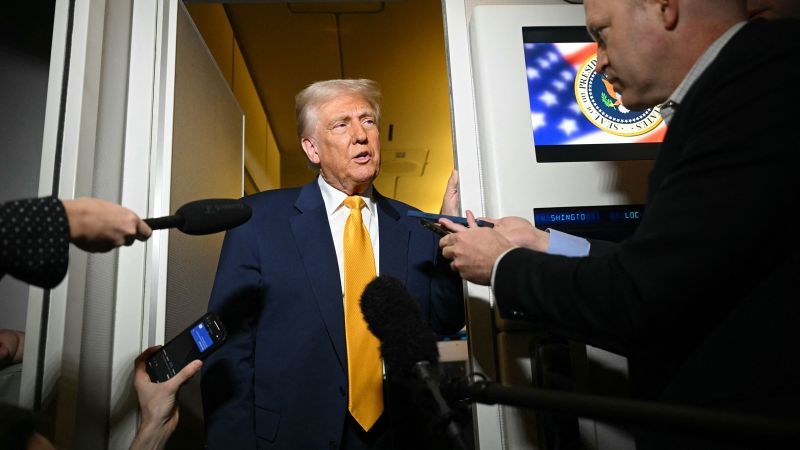In a significant shift concerning journalist access to the White House, the Trump administration has made the controversial decision to remove the Associated Press (AP) from the critical pool of reporters that cover presidential activities. This change comes in light of a federal judge’s ruling that mandated the restoration of access for the AP, indicating that the administration may be attempting to navigate legal constraints while still limiting the presence of the respected news agency.
The decision to eliminate the wire position from the daily press corps rotation appears to have been strategically crafted to avoid direct conflict with the judiciary while simultaneously disadvantaging the AP. The wire service had previously drawn the ire of President Donald Trump after it refused to adopt his administration’s preferred nomenclature for the Gulf of Mexico, which had been changed to the Gulf of America. This odd controversy highlights the tensions between the Trump administration and established news organizations, wherein the president has displayed a penchant for attempting to control the narrative presented to the public.
The implications of this new policy will reverberate through the media landscape, particularly among local news agencies that rely heavily on AP coverage. Many such outlets depend on the AP for accurate, fact-driven reporting, especially in the absence of their own White House correspondents. Thus, the erosion of access for the AP means that vital information that these local entities obtain from the wire will be considerably diminished, affecting the quality and comprehensiveness of news available to the public.
Central to this issue is the arrangement of the “press pool,” a select group of journalists who travel with the President and report on executive events for a wider audience. The rotation system within the pool is crucial for ensuring coverage of significant presidential engagements, which often occur in small gatherings rather than wide public spectacles. Historically, the White House Correspondents’ Association determined pool assignments; however, in February, Press Secretary Karoline Leavitt altered this long-standing practice, effectively stripping the association of its authority and consolidating control within the White House.
Despite ongoing participation from many legacy news organizations in the pool, the adjustments made by Leavitt have led to an increase in spots for newer media outlets that tend to offer more favorable coverage of the administration. This deliberate maneuvering raises concerns about the integrity and impartiality of presidential coverage during an administration notorious for its combative relationship with the media.
In a recent formal memo, a White House official delineated the criteria for pool assignments while expunging any mention of the wire services, despite their foundational role in White House reporting. Instead of a reserved spot for wire agencies, there will be an additional slot designated for print journalists, creating an environment in which wire services like The AP, Reuters, and Bloomberg would find their access notably curtailed compared to previous arrangements.
The dispute between the AP and the Trump administration escalated when the White House began prohibiting AP journalists from attending pooled events, in retaliation for the wire service’s refusal to comply with the name change of the Gulf. In response, the AP pursued legal action, claiming violations of First and Fifth Amendment rights. Recently, U.S. District Judge Trevor McFadden sided in favor of the AP, asserting that the Constitution prohibits viewpoint discrimination, even in ostensibly restricted forums like the Oval Office.
Following the ruling, the White House revised its pool plan to ensure that wire services share an “equal playing field” with other media outlets. This was seen as a superficial fix to an underlying issue of discriminatory access. In the recent memo, the White House contended that eligibility for pool participation would not hinge on an outlet’s viewpoint, a claim met with skepticism from industry watchers.
Representatives from various news organizations have expressed concern over the potential implications of limited access to the President. Reuters, for example, emphasized the essential role of independent journalism in democracy and criticized any government move to constrain access to information. Similarly, Kelly O’Donnell, a veteran journalist, lamented the diminished pool access for wire reporters, underscoring their critical role in covering the White House and maintaining the public’s understanding of government actions.
In summary, the Trump administration’s maneuvering regarding media access not only highlights the ongoing tensions between government and the press but also poses risks to journalistic integrity and public access to information. As the landscape continues to evolve, the ramifications of these actions are likely to resonate through the fabric of American journalism and democratic discourse.



